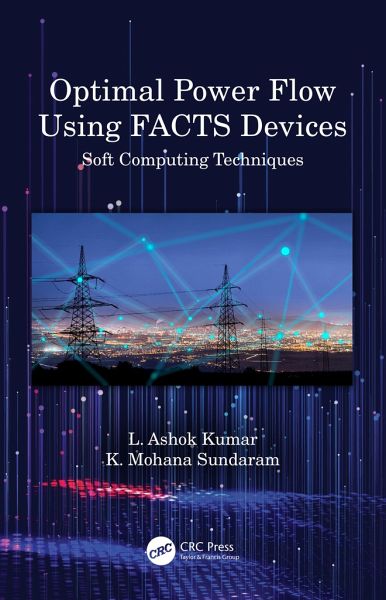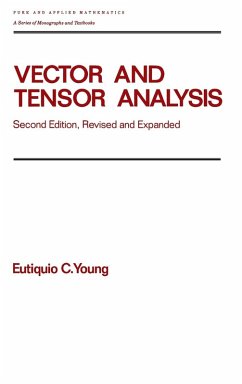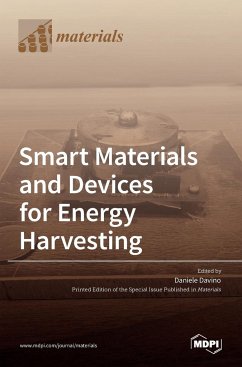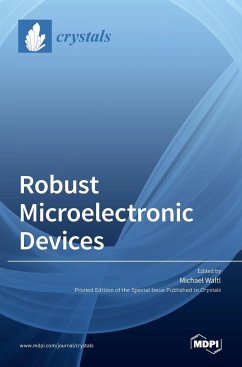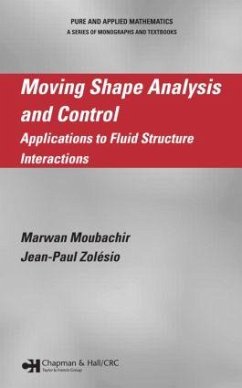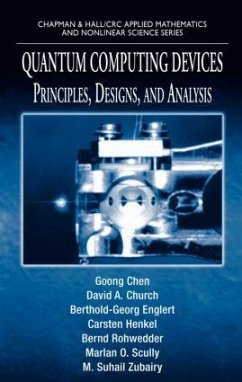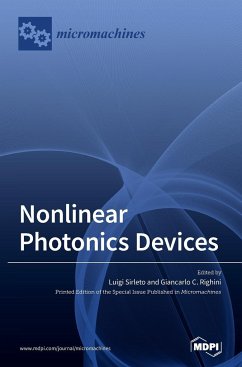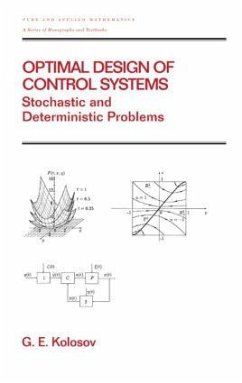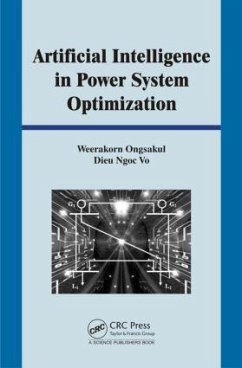Optimal Power Flow Using FACTS Devices
Soft Computing Techniques
Versandkostenfrei!
Versandfertig in 1-2 Wochen
Weitere Ausgaben:

PAYBACK Punkte
66 °P sammeln!




The objective of this book is to develop intelligent algorithms for analysing optimal power flow (OPF) and to enhance the power transfer capability of the transmission line with reduced congestion. This book describes the various problems associated with power system operation and controls including soft computing metaheuristics algorithms.
Dr. L. Ashok Kumar was a Postdoctoral Research Fellow from San Diego State University, California. He is a recipient of the BHAVAN fellowship from the Indo-US Science and Technology Forum and SYST Fellowship from DST, Govt. of India. His current research focuses on integration of Renewable Energy Systems In the Smart Grid and Wearable Electronics. He has 3 years of industrial experience and 19 years of academic and research experience. He has published 167 technical papers in International and National journals and presented 157 papers in National and International Conferences. He has completed 26 Government of India funded projects, and currently 7 projects are in progress. His PhD work on wearable electronics earned him a National Award from ISTE, and he has received 24 awards on the National level. Ashok Kumar has seven patents to his credit. He has guided 92 graduate and postgraduate projects. He is a member and in prestigious positions in various national forums. He has visited many countries for institute industry collaboration and as a keynote speaker. He has been an invited speaker in 178 programs. Also he has organized 72 events, including conferences, workshops, and seminars. He completed his graduate program in Electrical and Electronics Engineering from University of Madras and his post-graduate from PSG College of Technology, India, and Masters in Business Administration from IGNOU, New Delhi. After completion of his graduate degree, he joined as project engineer for Serval Paper Boards Ltd., Coimbatore (now ITC Unit, Kovai). Presently he is working as a Professor and Associate HoD in the Department of EEE, PSG College of Technology and also doing research work in Wearable Electronics, Smart Grid, solar PV, and Wind Energy Systems. He is also a Certified Charted Engineer and BSI Certified ISO 500001 2008 Lead Auditor. He has authored the following books in his areas of interest (1) Computational Intelligence Paradigms for Optimization Problems Using MATLAB(R)/SIMULINK(R), CRC Press, (2) Solar PV and Wind Energy Conversion Systems--An Introduction to Theory, Modeling with MATLAB/SIMULINK, and the Role of Soft Computing Techniques--Green Energy and Technology, Springer, USA (3) Electronics in Textiles and Clothing: Design, Products and Applications, CRC Press, (4) Power Electronics with MATLAB, Cambridge University Press, London (5) Automation In Textile Machinery: Instrumentation And Control System Design Principles - CRC Press, Taylor & Francis Group, USA, ISBN 9781498781930, April 2018.(6) Proceedings of International Conference on Artificial Intelligence, Smart Grid and Smart City Applications, Springer International Publishing, Springer (7) Deep Learning Using Python, Wiley India Publications, India (8) Monograph on Smart Textiles (9) Monograph on Information Technology for Textiles, and (10) Monograph on Instrumentation & Textile Control Engineering. K. Mohana Sundaram is Professor in Department of EEE, KPR Institute of Engineering and Technology, Coimbatore India. He has 18 years of teaching and research experience. His current research interests include intelligent controllers, power systems, embedded systems, and power electronics. He has completed a funded project of worth Rs. 30.84 lakhs sponsored by DST, Government of India. He received his B.E. degree in Electrical and Electronics Engineering from University of Madras in 2000, M. Tech degree in High Voltage Engineering from SASTRA University in 2002, and Ph.D. degree from Anna University, India, in 2014. Under his supervision, four candidates have completed their Ph.D. from Anna University, Chennai, while nine candidates are still pursuing. He has published 47 articles in international journals. He serves as reviewer for IEEE journals, Springer journals, and Elsevier. He is a member of IE, ISTE, IAENG, etc.
Produktdetails
- Verlag: CRC Press
- Seitenzahl: 240
- Erscheinungstermin: 4. Dezember 2020
- Englisch
- Abmessung: 240mm x 161mm x 18mm
- Gewicht: 529g
- ISBN-13: 9780367565725
- ISBN-10: 0367565722
- Artikelnr.: 60008328
Herstellerkennzeichnung
Libri GmbH
Europaallee 1
36244 Bad Hersfeld
gpsr@libri.de
Für dieses Produkt wurde noch keine Bewertung abgegeben. Wir würden uns sehr freuen, wenn du die erste Bewertung schreibst!
Eine Bewertung schreiben
Eine Bewertung schreiben
Andere Kunden interessierten sich für



